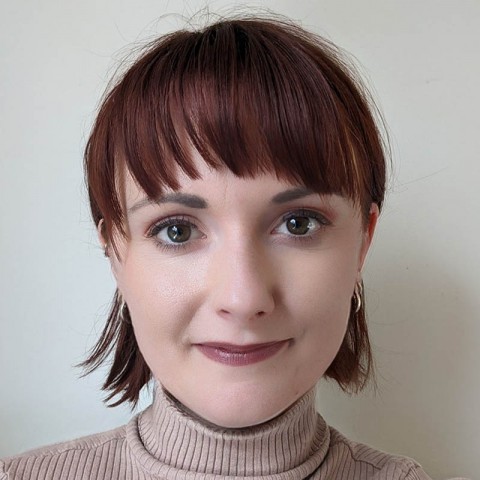Dr Caitlin McQueen
Programme Leader for the MSc Stem Cells and Regenerative Medicine
Caitlin joined the University of Chester in May 2022 teaching in Chester Medical School and is Programme Lead for the MSc Stem Cells and Regenerative Medicine and BSc Medical Science courses at UCS. Her research interests cover embryonic development, cellular differentiation and their application in establishing mechanisms behind degenerative disorders and regenerative medicine.
Caitlin teaches a range of modules across the undergraduate BSc and MSc Biotechnology and MSc Stem Cells and Regenerative Medicine courses at UCS. She is module lead for MD5001 Biology of Disease, MD5008 Cell Signalling, MD5015 Metabolism, MD6001 Research Dissertation, MD6002 Gene Regulation, MD7028 Stem Cell Theory and Practice, MD7029 Tissue Formation and Regeneration and MD7817 Emerging Molecular Therapies in Medicine.
Caitlin is the programme lead for the MSc Stem Cells and Regenerative Medicine and BSc Medical Science courses.
Caitlin’s research interests are focused within the field of developmental biology and embryology, with particular interest in regulation of muscle differentiation and patterning, limb development and the regulation of developmental timing.
Caitlin completed her undergraduate at the University of York in 2014. She remained at York whilst completing her thesis entitled “Investigating the coordinated transcriptional networks regulating Xenopus myogenesis” receiving her doctorate in 2018. Within this project, she utilised in vivo spatial analyses such as in situ hybridisation alongside high-throughput transcriptomic analyses (RNA-Seq, custom microarrays) to investigate novel roles of RNA Polymerase III isoforms during development and their regulation of both RNA Polymerase III transcripts and muscle-related gene expression (McQueen & Pownall, 2017; McQueen et al., 2019).
Caitlin then moved to the University of Sheffield to study limb development and patterning (McQueen & Towers, 2020). Here she carried out research for a number of projects, including investigating the role of Shh signalling in regulating the specification of evolutionarily conserved flight feathers during development (Busby et al., 2020) , detailed 3D mapping of limb neuromuscular networks and more recently, developed an ex vivo culture system to investigate the ability of limb cells to maintain developmental timing in the absence of cues from the wider embryo. This work established a transient role for Fgf signalling in establishing limb distal patterning events but revealed that it is dispensable for its maintenance leading to the most recent co-first authorship publication (Sedas Perez et al., 2023).
Caitlin is currently running projects encompassing both of these topics, investigating the role of RNA Polymerase III transcription in driving development of the vertebrate limb and musculoskeletal system. Her work in developmental biology has also applied well to investigation of germ layer specification during embryogenesis.
Sedas Perez S*, McQueen C*, Stainton H, Pickering J, Chinnaiya K, Saiz-Lopez P, Placzek M, Ros MA, Towers M. (2023) Fgf signalling triggers an intrinsic mesodermal timer that determines the duration of limb patterning. Nat Commun 14, 5841. https://doi.org/10.1038/s41467-023-41457-6 (*) equal contribution Fgf signalling triggers an intrinsic mesodermal timer that determines the duration of limb patterning | Nature Communications
McQueen C, Pownall ME (2017) An analysis of MyoD-dependent transcription using CRISPR/Cas9 gene targeting in Xenopus tropicalis embryos. Mech Dev; 146, 1-9.
McQueen C, Hughes GL, Pownall ME (2019) Skeletal muscle differentiation drives a dramatic downregulation of RNA polymerase III activity and differential expression of Polr3g isoforms. Dev Biol. 454(1):74-84.
Busby L, Aceituno C 5 , McQueen C 5 , Rich CA, Ros MA, Towers M (2020) Sonic hedgehog specifies flight feather positional information in avian wings. Development; 147(9):dev188821.
McQueen C, Towers M. (2020) Establishing the pattern of the vertebrate limb. Development;147(17):dev177956.